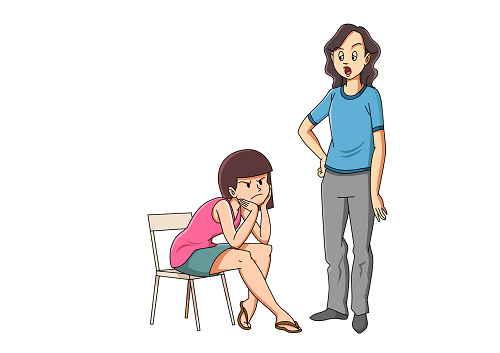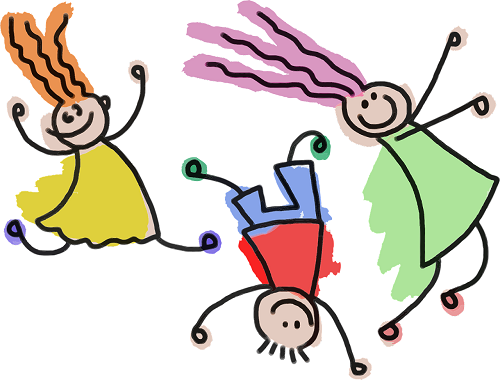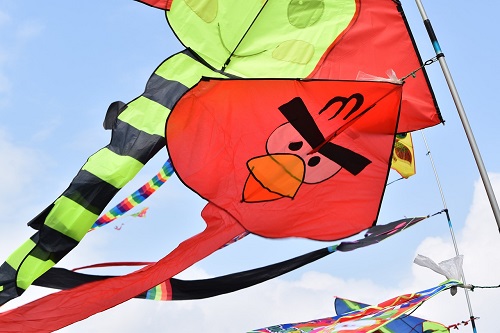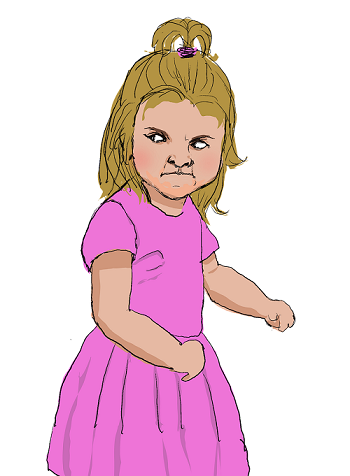Anger is a natural emotion that children experience for various reasons, such as frustration, communication challenges, fear, and overstimulation. While anger itself is a normal part of human emotions, it can become problematic for a child’s emotional well-being, social relationships, and overall health if it becomes a habitual response.
Therefore, teaching anger management to kids is crucial, as it provides them with essential life skills. This guidance helps children regulate their emotions, nurturing their mental and emotional health.
Additionally, anger management fosters the development of strong social skills, enabling children to effectively express their feelings and navigate relationships without resorting to aggression or violence. Furthermore, it can contribute to academic success by allowing students to concentrate and learn without disruptions. Reduced aggression, improved self-esteem, better physical health, and enhanced conflict resolution abilities are among the many benefits of instilling these vital skills.
Consequently, parents, caregivers, teachers, and counselors play a pivotal role in helping children recognize, understand, express, and cope with their anger constructively, paving the way for emotional well-being and healthy social development.
Anger management exercises for kids play a crucial role in teaching children how to not only recognize but also effectively cope with their anger in ways that promote emotional well-being and healthy social interactions. It’s essential that these exercises are tailored to the child’s age and interests to ensure their engagement and success in learning these invaluable skills. In the following sections, we will explore a comprehensive list of 14 effective exercises and activities specifically designed to assist kids in managing their anger constructively.
These exercises encompass a wide range of techniques and approaches that are used by many child psychology experts and therapists, these exercises can be adapted to various age groups, allowing parents, caregivers, educators, and counselors to choose those most suitable for the child’s developmental stage and needs. By incorporating these exercises into a child’s routine, we can empower them to navigate and express their anger in healthier and more productive ways.
#1 Deep Breathing:
Deep breathing serves as a valuable anger management tool for children. When kids begin to experience anger, guiding them to engage in slow, deep inhalations through the nose followed by gentle exhalations through the mouth effectively soothe the physical symptoms of anger, like heightened heart rate and shallow breaths. To encourage reluctant participation, incorporating rewards can be beneficial. By incentivizing the practice of deep breathing when anger arises, we motivate children to harness this technique for managing their intense emotions constructively.
#2 Count to Ten: Instructing children to count to ten before responding to upsetting situations is a valuable strategy for anger management. This simple yet effective exercise encourages them to create a moment of pause between the triggering event and their reaction. By counting slowly to ten, kids gain the opportunity to collect their thoughts and consider their response more thoughtfully, rather than impulsively acting on their anger. This pause not only allows emotions to cool down but also fosters the development of impulse control and emotional regulation. Over time, children can use this technique to navigate challenging situations with greater composure and make more reasoned choices in their responses.
# 3 Anger Thermometer:
Therapists often employ this anger thermometer technique to help patients manage their anger. This method involves asking individuals, particularly children, to gauge their anger levels when they are upset. By shifting their focus from the source of their anger to this exercise, individuals often experience an instant sense of calm. Children, in particular, tend to find this approach engaging and enjoyable.
This technique is often presented as an “anger thermometer.” The thermometer features various levels of anger, ranging from a state of calm to the height of fury. When children are upset, they are encouraged to identify where they currently stand on this anger thermometer. This simple act of self-assessment can be enlightening, as it provides a tangible representation of their emotions.
By actively participating in this process, children not only gain valuable emotional awareness but also develop practical tools to manage their anger in a healthy and productive manner.
#4 Feelings Journal: Motivate children to maintain a feelings journal, where they can express their emotions through words or drawings, especially during moments of anger. This practice fosters a deeper understanding of their feelings and aids in recognizing what triggers their anger. By documenting their emotions, kids develop a valuable tool for emotional self-awareness and communication. It empowers them to navigate and manage their anger more effectively, ultimately promoting emotional growth and well-being.
# 5 Mindful Coloring: Coloring serves as a soothing pastime. Offer intricate mandala or detailed design coloring sheets to children, encouraging mindful coloring. Instruct them to focus on colors and shapes as they color, creating a serene and meditative experience.
# 6 Role-Playing: Engage in role-playing exercises to explore different situations that may provoke anger in kids. In these scenarios, guide children in discovering alternative, non-aggressive responses. Encourage them to use “I” statements effectively to express their emotions assertively, without resorting to aggression. These practical role-play sessions equip children with valuable conflict-resolution skills and foster healthy communication, enabling them to manage anger constructively.
#7 Positive Affirmations: Collaborate with the child to craft a collection of positive affirmations aimed at bolstering their self-esteem and confidence. Urge them to incorporate these affirmations into their routine, especially during moments of distress. This empowering exercise not only cultivates a more positive self-image but also provides a tangible tool for self-assurance. By consistently repeating these affirmations, children can fortify their emotional resilience and navigate challenging situations with greater self-belief and composure.
#8 Anger Management Games: Explore specialized board games and card games tailored for anger management, such as “Anger Bingo” or the “Anger Control Card Game.” These interactive activities infuse an element of enjoyment into the process of learning about anger management. They offer a playful and engaging means for individuals to grasp essential anger-control skills. Through these games, participants can enhance their emotional regulation techniques while fostering a sense of enjoyment and camaraderie, making the journey towards anger management a more enjoyable and effective one.
# 9 Relaxation Techniques: Introduce children to calming techniques like progressive muscle relaxation and guided imagery to assist them in managing anger. Progressive muscle relaxation involves tensing and then releasing muscle groups, aiding in tension reduction. Guided imagery encourages children to use their imagination for peaceful mental escapes, diverting attention from anger triggers. These techniques empower children to regain emotional control during moments of anger, fostering self-regulation and emotional well-being. By incorporating these practices into their routines, children develop valuable skills for anger management, enhancing their emotional resilience and overall emotional development.
# 10 Create a Calm-Down Kit: Assist children in assembling a “calm-down kit” containing comforting items like a stress ball, beloved books, calming music, or a soft toy. This kit serves as their go-to resource when they experience anger, providing instant solace and emotional relief. By having these items readily available, children can proactively manage their emotions, fostering a sense of security and control during challenging moments. This simple yet effective strategy empowers them to cope with anger in a healthy and constructive manner, promoting emotional well-being and resilience.
#11 Anger Management Worksheets: Utilize anger management worksheets tailored for children. These worksheets feature interactive activities and prompts that guide kids in exploring their emotions and cultivating effective coping strategies. By engaging with these resources, children can gain a deeper understanding of their feelings and learn how to manage anger constructively. These purposeful worksheets empower kids to develop essential emotional regulation skills, promoting healthier responses to anger-inducing situations. This hands-on approach facilitates their emotional growth and resilience, providing them with valuable tools for navigating challenging emotions in a productive and positive way.
#12 Puppet Play:
Puppet play is beloved by most children, especially effective with younger ones. Utilizing puppets or stuffed animals to role-play scenarios that provoke anger offers a creative outlet for emotional expression. This playful approach allows kids to externalize their feelings through these characters, making it easier for them to communicate and process their emotions.
Through puppet play, children can openly express their anger and engage in discussions about managing it. It provides a safe and engaging space for them to brainstorm and explore various strategies for dealing with anger in real-life situations. This interactive method enhances their communication skills, fosters emotional understanding, and equips them with practical tools to handle anger constructively, benefiting their overall emotional development.
Remember that consistency and patience are essential when teaching anger management to children. As adults and caregivers, we must serve as role models, demonstrating healthy ways to handle anger. However, if a child’s anger issues persist or become severe, seeking professional guidance from a mental health specialist or child counselor can be invaluable. These experts are well-equipped to offer tailored strategies and support, ensuring that children develop the essential skills to manage their emotions effectively.
Through dedication and expert guidance, we can empower our children to skillfully navigate emotions like anger, fostering their well-being and personal growth. To delve deeper into this topic, please visit our post on the importance of anger management for kids.
Thank you so much for visiting our site, we hope you found this content useful. We would love to hear your views, suggestions, and opinions about this post, so kindly share your thoughts with us by commenting below.
For any queries, drop us a message using our contact page.